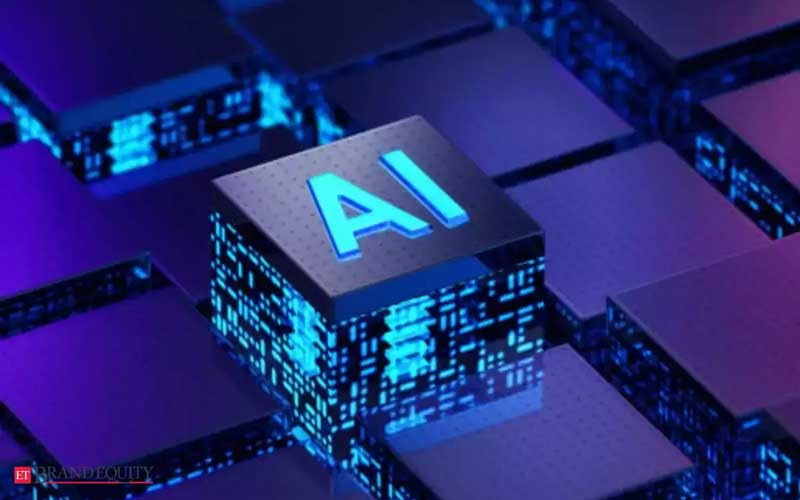
THE introduction of new technologies and subsequent embracing of artificial intelligence (AI) has been celebrated worldwide by many people, including students at tertiary colleges.
The future of education is being shaped by one of the most powerful and rapidly developing technologies of our time, AI, which is being used in education in a variety of ways.
Globally, the percentage of internet users rose to 66% in 2022 from 16% in 2005, according to data from the United Nations Educational, Scientific and Cultural Organisation.
The organisation added that about 50% of the world’s lower secondary schools were connected to the internet for pedagogical purposes in 2022.
The adoption of digital technology has resulted in many changes in the education system, particularly in tertiary colleges.
There is a growing concern over the potential risks of AI in education, such as bias in algorithms and the dehumanising effect of relying too heavily on technology, which is a breach to the right of every person to public, free, quality education and the commitment of the country to the international human rights law and Sustainable Development Goal 4.
The international human rights law and Sustainable Development Goal 4 focus on achieving inclusive and quality education as it is one of the most powerful and proven vehicles for sustainable development.
This goal ensures that all girls and boys enjoy free primary and secondary schooling by 2030.
- Public relations: How artificial intelligence is changing the face of PR
- Queen Lozikeyi singer preaches peace
- Public relations: How artificial intelligence is changing the face of PR
- Business opinion: Branding through Artificial Intelligence
Keep Reading
University students highlighted reasons why and how they started using AI in various institutions.
A Lupane State University student Audrey Svosve said she was first introduced to AI by her friend and gave it a try.
“It has really helped me very well especially in theoretical assignments actually to greater extent because the information is easy to understand and what you ask for it gives unlike Google there's information overload and you are told unnecessary things but AI goes straight to the point, and now that you can get citations from AI it’s really great and it has made writing assignments for us student simple.”
A student from the University of Zimbabwe Moesha Musiyazviriyo said she started using AI after seeing many adverts about AI. It wrote about any schoolwork that she searched on Google. AI was advertised on every platform even Tik Tok so she ended up using it.
“I am quite aware that AI compromises the quality of my research. Research is important as it generates more ideas and fills gaps. AI reduces the capacity of research work to produce this as everything is presented to you. The researcher should be keen on the results of their studies, but AI can produce the results before one is done hence it reduces the zeal to work on the study. Research is also prone to plagiarism from AI though the responses are subjective,” she added.
National University of Science and Technology student Sinakwinkosi Mdlongwa said: “I feel like AI will greatly contribute to students’ reluctance in performing tasks. Because I know I can write an assignment 5 minutes before it's due. So, they'll be a huge dependence on AI. There will definitely be a deficit in students that can effectively apply skills that they supposedly went to school for.”
She also added that most of the engines were programmed to a specific period like 2021. So, its depth of knowledge is limited and is bound to give false information on current issues.
However, it is important to note that AI is not only a hotbed of controversy but a timely tool for the academic field if used correctly.
Students and lecturers applauded the introduction of AI saying that it aided research. It helps to guide them to better understand concepts, and to then do their research from an informed standpoint.
However, use of plagiarism detection software such as Turnitin or Grammarly to identify instances of plagiarism is required as these tools compare submitted work against a vast database of sources and highlight potential matches, helping educators to identify and address cases of plagiarism.
Academic experts have celebrated the invention of AI simultaneously decrying it as they have noticed that students’ quality of work has been compromised by AI as they now plagiarise information from the application.
Academic Abel Dzobo said: “It’s a cliché, but I will repeat it all the same, technology is a double-edged sword. It is meant to make life easier, and all over the world, AI tools such as ChatGpt, among others, are being used by students for their assignments and dissertations.
“The legal framework falls short as regards stopping their use. Even universities themselves, in their ordinances, punish students for plagiarism, but not for using AI software and that poses a serious challenge for lecturers and departments.
“So yes, Zimbabwean university students are using AI tools or software, but it's not unique to Zimbabwe, it's a global issue. There are many lawsuits against use of AI in universities, but technology is a marauding beast, it's difficult to tame,” he said.
“It's two-pronged, on one side it has aided research, but on the other hand, research is now non-existent.
“AI tools have killed research. AI will generate the question, interview itself and write the whole dissertation. Real people informed by real experiences are missing.
It's scary, it reminds me of Terminator movies, with machines taking over,” he added.
AI-powered essay-writing bots could have a big influence on students’ behaviour in several ways.
Students may become more dependent on these bots in writing their essays, leading to a reduction in critical thinking, research skills, and the ability to articulate their own thoughts and ideas. Instead of engaging in a writing process, they may simply rely on the bots to generate content.
Senior lecturer in the department of Media, Communication, Film and Theatre Arts at the Midlands State University, Albert Chibuwe, said “AI promotes laziness and plagiarism among students. The answers it generates are not always correct.”
Most technological “disruptions" leave both positive and negative effects in their wake. If the college essay is indeed unsalvageable, perhaps ChatGPT will finally bring about its replacement with something more interesting, Noam Chomsky said.
Acting executive Dean, Faculty of Social Sciences and Humanities, Bindura University of Science Education, David Makwerere, said that AI is a phenomenon that has taken the world by storm and higher education is not excluded but it comes with advantages and disadvantages.
“Indeed, AI is posing a challenge particularly when it comes to regulating the work that the students submit in terms of quality and originality, it also threatens the authenticity of what students present and perhaps also stuff members on the things that they would have researched."
A lecturer in the department of journalism at the National University of Science and Technology Nkosini Khuphe, said: “…one thing that I have noticed with regards to AI usage among students is day by day its getting more and more prevalent, one of the reasons causing this is the pressure that they will be going through, students are now using AI to write their assignments, they just post a question on AI and it writes for them, they then copy and write based on that.
“Again in terms of research it has actually affected the students’ ability to conduct research on their own, research requires one to read different sources and identify the gaps that exist there, but now with the coming in of AI students no longer go through these stages of reading, now they just rely on information that would have been generated by AI, sometimes one discovers that the information is not accurate and not up to date.
“At the end of the day it results in research work that is for example not accurate, because AI is programmed to have information up to a certain date, it might not be up to date as far as current affairs is concerned.”
He also said some scholars cited by AI are not accurate, sometimes even the examples and issues referred to by students will also be not accurate, unlike back then students would read actual documents, journals and come up with a proper assignment or research paper.











